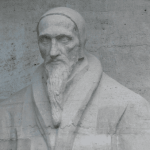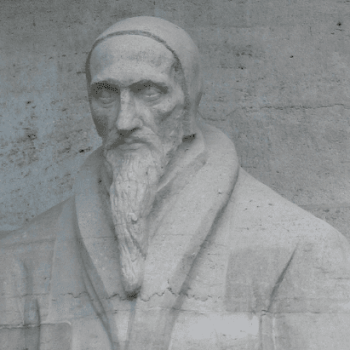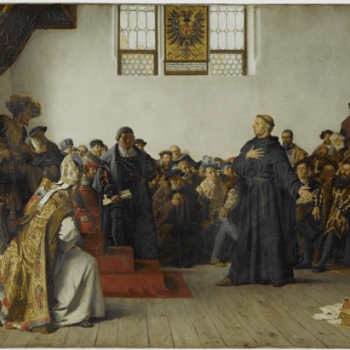
Martin Luther’s 95 Theses are in public domain, and you can read them at here.
Thesis 01
When our Lord and Master Jesus Christ said, “Repent’’ (Mt 4:17), he willed the entire life of believers to be one of repentance.
The thesis is orthodox. The Catechism of the Catholic Church (CCC) says:
1431 Interior repentance is a radical reorientation of our whole life, a return, a conversion to God with all our heart, an end of sin, a turning away from evil, with repugnance toward the evil actions we have committed.
Thesis 02
This word cannot be understood as referring to the sacrament of penance, that is, confession and satisfaction, as administered by the clergy.
The thesis is orthodox. I would add the word “only” in this way: “This word cannot be understood only as referring (…)”.
The CCC says:
1427 Jesus calls to conversion. This call is an essential part of the proclamation of the kingdom: “The time is fulfilled, and the kingdom of God is at hand; repent, and believe in the gospel.” In the Church’s preaching this call is addressed first to those who do not yet know Christ and his Gospel.
Thesis 03
Yet it does not mean solely inner repentance; such inner repentance is worthless unless it produces various outward mortification of the flesh.
The thesis is orthodox. The CCC says:
1430 Jesus’ call to conversion and penance, like that of the prophets before him, does not aim first at outward works, “sackcloth and ashes,” fasting and mortification, but at the conversion of the heart, interior conversion. Without this, such penances remain sterile and false; however, interior conversion urges expression in visible signs, gestures and works of penance.
Thesis 04
The penalty of sin remains as long as the hatred of self (that is, true inner repentance), namely till our entrance into the kingdom of heaven.
The thesis is orthodox because the temporal penalty can remain after death (1 Cor 3:13-15; 1 Pet 3:19), ceasing at the moment the believer enters Heaven. It is in Purgatory, in fact, that this temporal penalty is extinguished. It is also orthodox to say that inner repentance is like a hatred of self (Luke 9:23).
Thesis 05
The Pope neither desires nor is able to remit any penalties except those imposed by his own authority or that of the canons.
The thesis is heterodox.
Every sin involves a double consequence: guilt and punishment. This punishment, eternal or temporal, derives from the very nature of sin, and not from a canonical imposition.
Moreover, the penance imposed by the confessor is a way for the believers in Jesus Christ to repair the disorders caused by their sins.
The repentant sinner has the guilt erased and the eternal punishment (hell) abolished, but the temporal punishment remains.
The Church has the power to abolish the temporal punishment due to sin.
For this Thesis, some foundational principles from Scripture:
On guilt and punishment:
I will punish the world for its evil, and the wicked for their iniquity;I will put an end to the pride of the arrogant, and lay low the haughtiness of the ruthless. (Isa. 13:11)
On temporal punishments:
I will greatly multiply your pain in childbearing; in pain you shall bring forth children. (Gen. 3:16)
Therefore as sin came into the world through one man and death through sin, and so death spread to all men because all men sinned. (Rom. 5:12)
On the temporal punishment even after the forgiveness of sin:
David said to Nathan, ‘I have sinned against the Lord.’ And Nathan said to David, ‘The Lord also has put away your sin; you shall not die. Nevertheless, because by this deed you have utterly scorned the Lord, the child that is born to you shall die.’ (2 Sam. 12:13-14)
On the Church’s power to abolish the temporal punishments:
Truly, I say to you, whatever you bind on earth shall be bound in heaven, and whatever you loose on earth shall be loosed in heaven. (Matt. 18:18)











